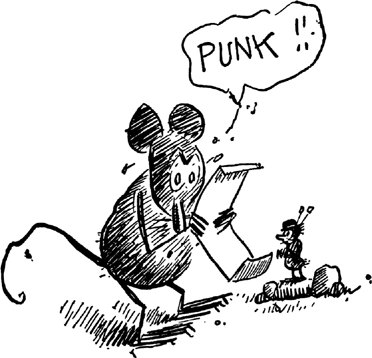The book had about a dozen sections; something by Marquis seemed to fit almost every one of them. He was parodist, historian, poet, clown, fable writer, satirist, reporter, and teller of tales. He had everything it takes, and more. We could have shut our eyes and dropped him in anywhere.
At bottom Don Marquis was a poet, and his life followed the precarious pattern of a poet’s existence. He danced on bitter nights with Boreas, he ground out copy on drowsy afternoons when he felt no urge to write and in newspaper offices where he didn’t want to be. After he had exhausted himself columning, he tried playwriting and made a pot of money (on The Old Soak) and then lost it all on another play (about the Crucifixion). He tried Hollywood and was utterly miserable and angry, and came away with a violent, unprintable poem in his pocket describing the place. In his domestic life he suffered one tragedy after another—the death of a young son, the death of his first wife, the death of his daughter, finally the death of his second wife. Then sickness and poverty. All these things happened in the space of a few years. He was never a robust man—usually had a puffy, overweight look and a gray complexion. He loved to drink, and was told by doctors that he mustn’t. Some of the old tomcats at The Players remember the day when he came downstairs after a month on the wagon, ambled over to the bar, and announced: “I’ve conquered that god-damn will power of mine. Gimme a double scotch.”
I think the new generation of newspaper readers is missing a lot that we used to have, and I am deeply sensible of what it meant to be a young man when Archy was at the top of his form and when Marquis was discussing the Almost Perfect State in the daily paper. Buying a paper then was quietly exciting, in a way that it has ceased to be.
Marquis was by temperament a city dweller, and both his little friends were of the city: the cockroach, most common of city bugs; the cat, most indigenous of city mammals. Both, too, were tavern habitués, as was their boss. Here were perfect transmigrations of an American soul, this dissolute feline who was a dancer and always the lady, toujours gai, and this troubled insect who was a poet—both seeking expression, both vainly trying to reconcile art and life, both finding always that one gets in the way of the other. Their employer, in one of his more sober moods, once put the whole matter in a couple of lines.
My heart has followed all my days
Something I cannot name …
Such is the lot of poets. Such was Marquis’s lot. Such, probably, is the lot even of bad poets. But bad poets can’t phrase it so simply.
E. B. White
archy and mehitabel

reads it and sniffs at it
the coming of archy
the circumstances of Archy’s first appearance are narrated in the following extract from the Sun Dial column of the New York Sun.
Dobbs Ferry possesses a rat which slips out of his lair at night and runs a typewriting machine in a garage. Unfortunately, he has always been interrupted by the watchman before he could produce a complete story.
It was at first thought that the power which made the typewriter run was a ghost, instead of a rat. It seems likely to us that it was both a ghost and a rat. Mme. Blavatsky’s ego went into a white horse after she passed over, and someone’s personality has undoubtedly gone into this rat. It is an era of belief in communications from the spirit land.
And since this matter had been reported in the public prints and seriously received we are no longer afraid of being ridiculed, and we do not mind making a statement of something that happened to our own typewriter only a couple of weeks ago.
We came into our room earlier than usual in the morning, and discovered a gigantic cockroach jumping about upon the keys.
He did not see us, and we watched him. He would climb painfully upon the framework of the machine and cast himself with all his force upon a key, head downward, and his weight and the impact of the blow were just sufficient to operate the machine, one slow letter after another. He could not work the capital letters, and he had a great deal of difficulty operating the mechanism that shifts the paper so that a fresh line may be started.
1 comment